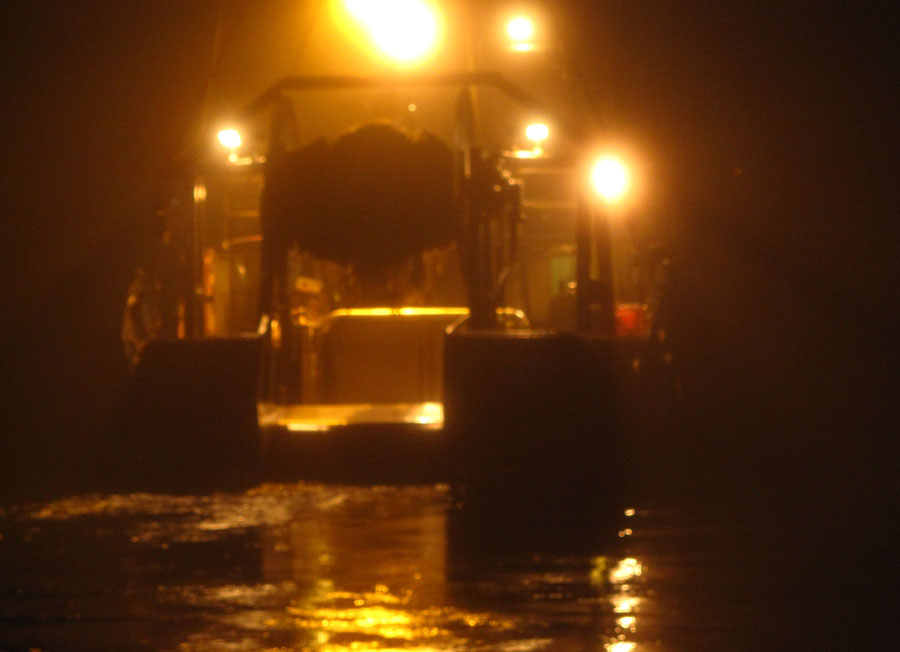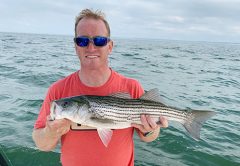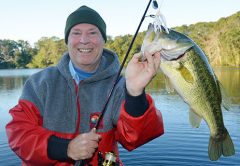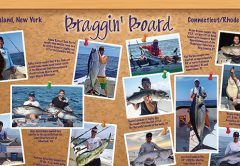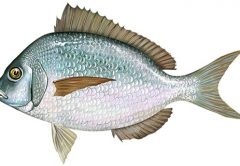By Zach Harvey
I will quietly admit that when Trump won the election, I breathed a very short and well-concealed sigh of relief—not because I had any personal faith in the man’s integrity, intelligence, poise, or political aptitude, but because I’d been getting increasingly alarmed by the audacity of some environmental NGO’s in the wake of Obama’s marine monument executive order bonanza.
Almost as soon as the ink had dried on an order that sealed fishermen out of thousands of square miles of bottom along the edge of the shelf SE of Cape Cod, Environmentalist interests put a full-court press on canyons further west, including Block and Hudson among other grounds of major import to fishermen from Virginia to Cape Cod. Using the momentum and the precedent of that order, which took a shotgun approach to protecting obscure, recently discovered deep sea corals whose actual location was totally unknown, they sought to close most of the Edge using these same little-studied bottom features.
In the months leading up to Election Day, the left (and enviros especially) was operating as though a Clinton victory were a foregone conclusion, I was becoming genuinely fearful that another four years under a liberal administration would usher in a mania of arbitrary area closures and leave an already punchdrunk fishing industry in smoldering ruins.
For the record, I am not the only left-leaning fisheries guy who felt this momentary relief. Nor am I the only guy who has since found new causes for alarm as our megalo-oligarch President Trump has snatched the reigns of executive power (and then some). My conservative friends in fisheries remain hopeful that our newly-anointed Supreme Leader will deliver on campaign trail promises to approach new regulation with an eye for untangling the statutory gridlock that has hamstrung various industries (the fleet, by extension) for years. For my part, while I’m grateful for the momentum shift, I’m considerably less confident that the next four years will do anything great for the fishing industry.
Here’s the trouble. For one thing, a grim truth about our industry is that, on a national, big-business scale, total US fishing revenues, or fishing jobs, look cute alongside any other food-production or leisure/ entertainment industry. America on the whole barely eats seafood—the bulk of what seafood we do consume is shrimp (much of it imported) or Alaskan pollock harvested by a relative handful of corporate-owned factory trawlers in the Pacific Northwest.
Stack our New England fleet up against, say, Big Chicken, Big Beef, Pepsico, or the defense history. Outside of the quaint seaside-town photo-ops or the appealing mythology of the American frontier spirit among independent fishermen (staples of election-year politics in New England), we just don’t represent the raw economic juice to command the sort of sustained executive or congressional attention it would take to put a small dent in the foothill of red tape that snarls up most fishing businesses.
More importantly, the huge regulatory burden current fishermen face is a product of many layers of overlapping environmental, budgetary, and interstate-commerce statute, not to mention state-federal jurisdictional gray areas or the thicket of permit issues. The fish-management regime’s reach extends well beyond the limitations of executive power, even if it were the President’s intention to put that house in order.
The root struggle these last 5 to 8 years—the underlying problem that arises in various fisheries multiple times per fishing year—is a statutory paradox stemming from Congress’s ongoing love affair with the idea that regulators must base all decisions on sound science. Unfortunately, with Commerce/NOAA/NMFS personnel and budgets stretched paper-thin in recent years, there has been almost no money available to conduct all the aforementioned groundbreaking fishery research.
As it stands, the only route out of unnecessarily harsh catch restrictions on species like, say, black sea bass, will be a whole pile of data that will eventually hack the considerable statistical uncertainty about the size, composition, or distribution of that fish stock down to size. Current wording in the Magnuson Act requires that regulators subtract the margin for error (as a percentage of the total allocated landings).
Maybe I’m being overly cynical, but hiring freezes and probable major shifts in budgetary priorities don’t give me soaring hopes for the fishery’s five-year outlook. Or, put another way, with multiple federal agencies that serve much larger segments of the US population in disarray, I doubt we’ll see a brighter day for our fishermen atop the new administration’s to-do list.
Or course, there’s a more fundamental concern for the fishery’s five- or 10-year prospects—a familiar worry for those who’ve been paying close attention to federal fisheries policy over the last decade. For better or worse, we’re now five or so years down a path to industry consolidation. Since the enviro world found religion in catch shares some years back, regulators have been using a combination of limited entry/ access and “natural” market forces (working capital first and foremost) to deliver a huge reduction in domestic fishing capacity.
If you want to know where this is all headed, all you need do is examine any other major American industry in the Big Box Era of American business. By any name, catch shares are a tool of corporatization and, more importantly, of privatization. Unlucky for working fishermen, the process by which units of a commodity historically viewed as a public resource fall into private hands seldom favors the little guy.
And if you want to get a clearer sense of where President Trump falls on small-business economics, look at the way the man conducted business in the private sector, particularly the way he has negotiated or leveraged his debts. If you want some insight into his sentiments about the oft-romanticized work of fishing, consider: The guy who plans to build the Great Wall of Texas, who has been crystal-clear about his intent to close America’s doors to immigrants, is a guy with little use for the mythology of frontiers or the independent spirit of fishermen.
Many of our politicians and the throngs of lobbyists who steer them have bought into the commoditization—the buying, selling, trading, and individual ownership—of fish stocks (or timber, or water, etc.) as units of future annual harvest with variable exchange rates.
Brutal as it sounds, there are many business ventures that can profit from a given tract of seabed. It’s no accident, I’ve begun to suspect, that Obama sought to enclose and protect a large swath of our ocean. A decade into a closed-door dialogue about “marine spatial planning,” we’ve yet to see the full range of global players currently jockeying for position as we begin to negotiate the lay of fences across our liquid frontier. Mining, global container shipping, LNG ports, offshore wind and hydroelectric, oil, even academic research—business of serious financial consequence trying to gain footing. The clearing of our “common grazing land” of the fishermen who have long pulled their living from a watery extension of the public domain will—sooner than most of us suspect—secure the future for newer, bigger, better commerce.
Business on that scale is a force that dwarfs party politics. If you had it in your head that the far left (a la CLF, Pew, the Ocean Conservancy, EDF) is the sole purveyor of anti-fishing policy, start thinking bigger. Not all that’s green is good.
If you have a serious personal urge to secure your fishing future, now is the exact time you need to step up. Do extensive homework before you give any organization clearance to speak on your behalf. You’d be appalled to learn where many respected environmental groups land on key fishing or ecological issues. As for the faith you place in (or withhold from) our new top exec, believe half of what you see and none of what your hear.
By Zach Harvey

